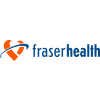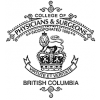Detailed Overview
Supporting the Vision, Values, Purpose and Commitments of Fraser Health including service delivery that is centered around patients / clients / residents and families : Within the context of a client and family centred model of care and in accordance with the mission, vision, values and strategic directions of Fraser Health, the Associate Physician (AP) - Cardiology, would perform duties to promote and facilitate excellence of health care for inpatient cardiac patients, serving as a physician extender.
The AP would be under the supervision of the ward attending cardiologist acting as Most Responsible Provider (MRP) on a day-to-day basis and would be accountable to the Local Department Head of Cardiology for the overall supervision and professional development.
The AP would support the provision of continuous care in a team-based environment working collaboratively with the MRP, Residents, Fellows, medical students, nursing and allied care providers to care for acute medical patients admitted under the Cardiology program.
The AP will need to demonstrate ability to communicate effectively and build relationships with other healthcare professionals including the ability to work collaboratively within a team.
This role will be required to demonstrate ability to maintain patient confidentiality and to document in accordance with the College of Physicians and Surgeons of British Columbia (CPSBC) and Fraser Health organizational standards, policies, and guidelines.
Responsibilities Participates in patient rounds under the supervision of the cardiologist MRP along with other care team members.
Participates in the day-to-day care of patients, including writing medical orders, referral to other services, and appropriately responding to changing patient conditions in consultation with and under direction of attending staff.
Performs and documents admission history and physical examination, progress notes, discharge summaries and medication reconciliation as per CPSBC and organizational standards, policies, and guidelines.
Develops treatment plans in response to changing patient condition where appropriate and in consultation with attending staff.
Follows through on investigations and consultancy recommendations in discussion with the attending staff. Communicates with and responds in a timely manner to calls from the nursing staff and other care team members.
Communicates with patients, family members, other consulting services, and trainees regarding patient care plans. Participates in professional development activities (minimum of 50 hours per year, 25 hours of which must be accredited training recognized by the Royal College of Physician and Surgeons Maintenance of Certification Program for healthcare professionals).
Attends clinical rounds, morbidity and mortality rounds, and other educational / research sessions. Participates in quality improvement projects relating to their patient or program.
Complies with Associate Physician programs CPD reporting requirements. Qualifications Medical degree from a school listed in the World Directory of Medical Schools.
Minimum of two years of accredited postgraduate training as a medical or surgical specialist, verified by the College of Physicians and Surgeons of BC (CPSBC).
Successful completion of Part 1 of the Medical Council of Canada Qualifying Examination (MCCQE) or Steps 1 through 3 of the United States Medical Licensing Examinations (USMLEs).
Valid Canadian Citizenship, be a permanent resident or be legally able to live and work in British Columbia. Eligible for registration with the CPSBC in the Associate Physician class, under sponsorship by Fraser Health Authority (FHA).
Proficiency in the English language as established by the CPSBC’s English language proficiency requirements. Qualified candidates will hold or achieve Advanced Cardiac Life Support (ACLS) certification during the three-month training and orientation period.
COMPETENCIES : Demonstrates the leadership practices of the Fraser Health Leadership Framework of Clear, Caring and Courageous and creates the conditions for people to succeed.
Knowledge and skill to diagnose and manage common medical problems in the medical patient. Confidence and experience in recognizing and initiating response to emergency situations such as shock, acute coronary syndrome, stroke, etc.
Ability to recognize medical instability and address initial priorities of resuscitation. Ability to judge situations where discussion and reporting to senior and most responsible physicians is appropriate.
Excellent English communication, including with patients, families and other health care professionals. Computer and written communication skills including order entry, clinical documentation, and ability to review relevant diagnostic information and health history.
Ability and comfort in working in a team-based environment. Ability to carry out professional duties in the face of multiple, competing demands.
Physical ability to carry out the duties of the position.









